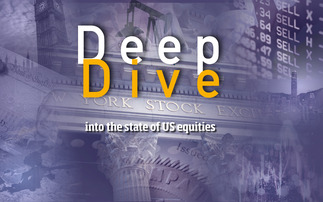
Even after the late-year "Santa" rally, all-in yields in many credit sectors are near multi-decade highs, making it tempting to portfolio managers to have overweight credit allocations to maximize the yield opportunity. But credit spreads are relatively narrow and the distinct risk of an economic or financial market recession looms eventually, so managers might opt to underweight credit sectors.
What's the solution to this portfolio construction dilemma? I think the answer is to lean even more heavily on the work of our global team of credit analysts to selectively find positions that offer attractive spreads and yields relative to their fundamental credit quality.
Lulled into complacency by near-zero defaults
Some fixed income investors may have been lulled into credit risk complacency by the near-zero default rates that have dominated the markets since the global financial crisis (GFC) of 2008-2009. Even following the worldwide economic shutdown at the onset of the pandemic in 2020, default rates did not spike as various government fiscal support programs bridged the gap to financial health for most corporations. I still think that a global recession in 2024 is more likely than not, which would push the number of defaults meaningfully higher.
Many corporate debt issuers were able to take advantage of rock-bottom interest rates in 2020 to refinance their higher-rate debt. But almost four years later, some corporations may face a "wall" of maturing bonds that will require them to tap the markets for funding. In the event of a financial markets recession—which I view as even more likely than an economic recession—credit spreads would widen, driving the cost of new issuance up and potentially increasing the debt burden for corporations.
Prefer high yield bonds, bank loans
Taking a broad view of the corporate credit sectors, high yield bonds and bank loans (which also typically have non-investment-grade credit ratings) could be areas to take risk. The credit quality of high yield issuers has steadily improved since before the GFC. As of November 2023, 53% of the global high yield bond market1 was BB rated, up from only 38% at the beginning of 2004. While high yield bond credit spreads are not notably wide on a historical basis, their combination of improved credit quality and attractive yield can provide a good source of credit exposure, although comprehensive credit analysis is still essential as global growth slows.
But we have also been finding some opportunities in short-maturity investment-grade corporates. Yields in this short-dated segment are actually approaching those on long-term corporate bonds, providing attractive carry paired with less credit and interest rate risk as a result of their shorter maturity. The long-dated end of the investment-grade corporate market, especially in the U.S., appears distinctly unappealing for those who are not forced to buy in this area.
Fundamental credit analysis drives individual positions
When it comes to positioning within these credit sectors—whether corporate or sovereign credit, investment-grade or high yield—we rely on our global team of credit and environmental, social, and governance (ESG) analysts.2 Their issuer-by-issuer fundamental work drives our individual credit positions. Our fixed income portfolio managers collaborate closely with sector credit analysts to identify names that may provide value relative to others in the same subsector or industry as well as those to avoid because of lack of relative value.
Important Information
This material is being furnished for general informational and/or marketing purposes only. The material does not constitute or undertake to give advice of any nature, including fiduciary investment advice, nor is it intended to serve as the primary basis for an investment decision. Prospective investors are recommended to seek independent legal, financial and tax advice before making any investment decision. T. Rowe Price group of companies including T. Rowe Price Associates, Inc. and/or its affiliates receive revenue from T. Rowe Price investment products and services. Past performance is not a reliable indicator of future performance. The value of an investment and any income from it can go down as well as up. Investors may get back less than the amount invested.
The material does not constitute a distribution, an offer, an invitation, a personal or general recommendation or solicitation to sell or buy any securities in any jurisdiction or to conduct any particular investment activity. The material has not been reviewed by any regulatory authority in any jurisdiction.
Information and opinions presented have been obtained or derived from sources believed to be reliable and current; however, we cannot guarantee the sources' accuracy or completeness. There is no guarantee that any forecasts made will come to pass. The views contained herein are as of the date written and are subject to change without notice; these views may differ from those of other T. Rowe Price group companies and/or associates. Under no circumstances should the material, in whole or in part, be copied or redistributed without consent from T. Rowe Price.
The material is not intended for use by persons in jurisdictions which prohibit or restrict the distribution of the material and in certain countries the material is provided upon specific request.
It is not intended for distribution to retail investors in any jurisdiction.














